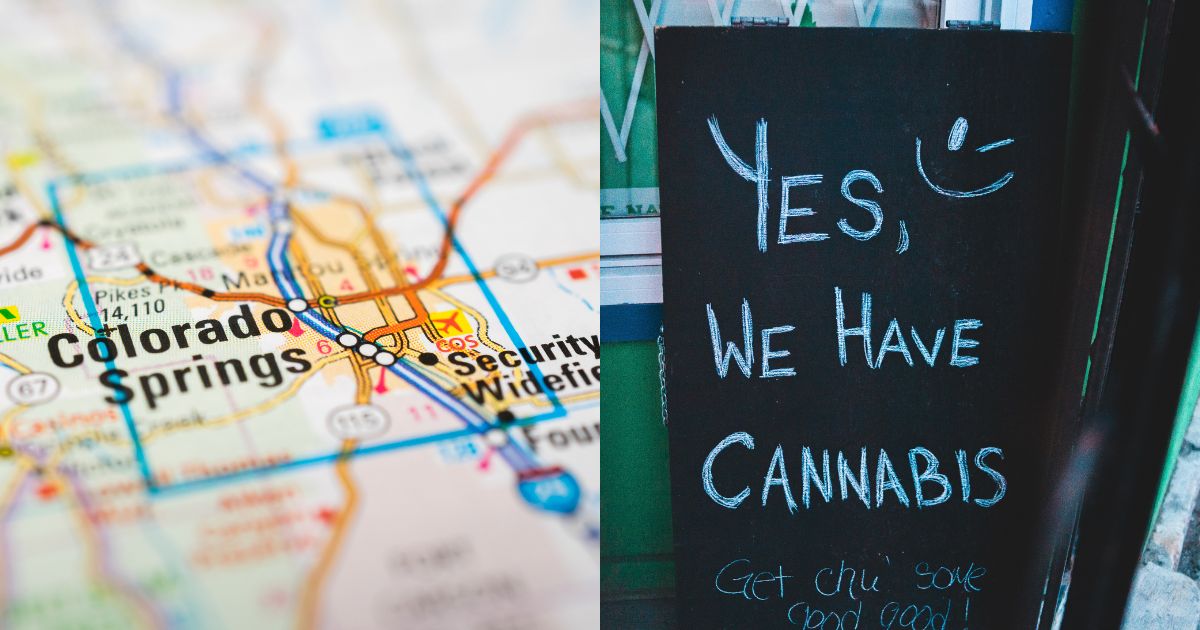Recreational marijuana has been a legal reality in Colorado since the state legalized the sale and use of the drug in 2014. For over a decade, however, Colorado Springs stood firm in its opposition, not allowing recreational marijuana sales within its jurisdiction. That changed yesterday, as the city officially opened its doors to retail marijuana sales after voters passed Question 300 back in November. This signals a new era for Colorado’s second-largest city and brings with it a mix of economic potential and political drama.
A Decade of Resistance to Recreational Marijuana in Colorado Springs
For years, Colorado Springs’ reluctance to join the rest of the state in recreational cannabis legalization stemmed from concerns raised by city leaders for what they argued was over public safety, youth access, and the city’s reputation. Officials worried that recreational marijuana could increase crime rates, expand underage cannabis use, and potentially jeopardize military investments in a city home to several military installations.
For years, medical marijuana dispensaries operated within the city under strict regulations, leaving residents to travel to nearby towns to access recreational cannabis. Even as other Colorado communities enjoyed the substantial tax revenues generated by recreational marijuana, Colorado Springs held its ground.
The Role of Question 300
The turning point came last November when local voters passed Ballot Question 300, allowing existing medical dispensaries to apply for licenses to sell recreational marijuana. The measure passed with 55% of the vote, a clear signal that public sentiment on the issue had shifted.
The passage of Question 300 was a crucial moment in Colorado Springs’ history, but it wasn’t without complications. Advocates of the measure argued that it would bring much-needed tax revenue to the city while providing local residents with more shopping convenience. Legislaters who opposed Question 300 claimed the language of the ballot measure was confusing and argued that voters may not have fully understood what they were approving.
Opponents of Question 300 did not accept the outcome quietly. Just months after the measure’s passage, the Colorado Springs City Council, led by Councilmember Dave Donelson, attempted to roll back the decision. The council introduced an effort to place another ballot measure in the April municipal election, aiming to repeal recreational sales. Donelson and his allies argued that the original ballot’s phrasing had caused voter confusion.
However, the Colorado judicial system stepped in to block this effort. Fourth Judicial District Court Judge Hilary Gurney ruled that the proposed repeal measure was unconstitutional, citing Colorado’s Amendment 64, which mandates that decisions on marijuana-related business bans or approvals occur only during general elections in even-numbered years. Gurney’s ruling sent a strong message that the council’s effort to overturn Question 300 was procedurally and ethically flawed.
What This Means for Colorado Springs
The rollout of recreational cannabis sales in Colorado Springs is the beginning of a new chapter for the city. With licenses issued to more than 30 medical dispensaries to expand into recreational sales, residents will no longer have to leave the city to purchase retail marijuana. This brings economic potential with it, as officials estimate the new sales could generate up to $2 million in tax revenue in the first year, according to KKTV.
The tax revenue will support community programs, including public safety initiatives and services for the homeless. Neighboring communities like Manitou Springs have already benefited from similar funding. Colorado Springs now has the opportunity to use these resources to enhance its public services while potentially reducing property tax reliance in the coming years.
The road to recreational cannabis in Colorado Springs has been long and contentious, highlighting the complexities of integrating such a polarizing industry into local economies and communities. While many residents see the policy shift as overdue, others are still adjusting to the city’s entry into the recreational cannabis market.
What remains clear is that Colorado Springs’ decision reflects national conversations about marijuana policy, voter trust, and local oversight. Business owners and city residents alike will be watching closely to gauge the social, financial, and community impacts brought by this shift.
Colorado Springs’ entry into recreational cannabis sales is more than just a local issue; it represents a microcosm of America’s evolving relationship with marijuana and how local governance intersects with public will.
- Why Cannabis Companies Are Looking to Europe for Business Opportunities
- Retail Spotlight – New Día Fenway in Boston, MA
- Federal Appeals Court Rejects Challenge to Marijuana Prohibition
- June Marks National Men’s Health Month & This Year Cannabis Comes to the Table
- Call to Action: Last Push For AB564 to Stop The Excise Tax Hike























